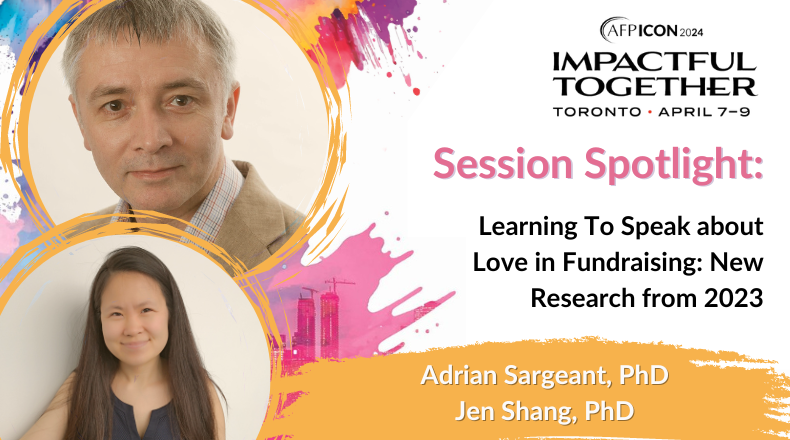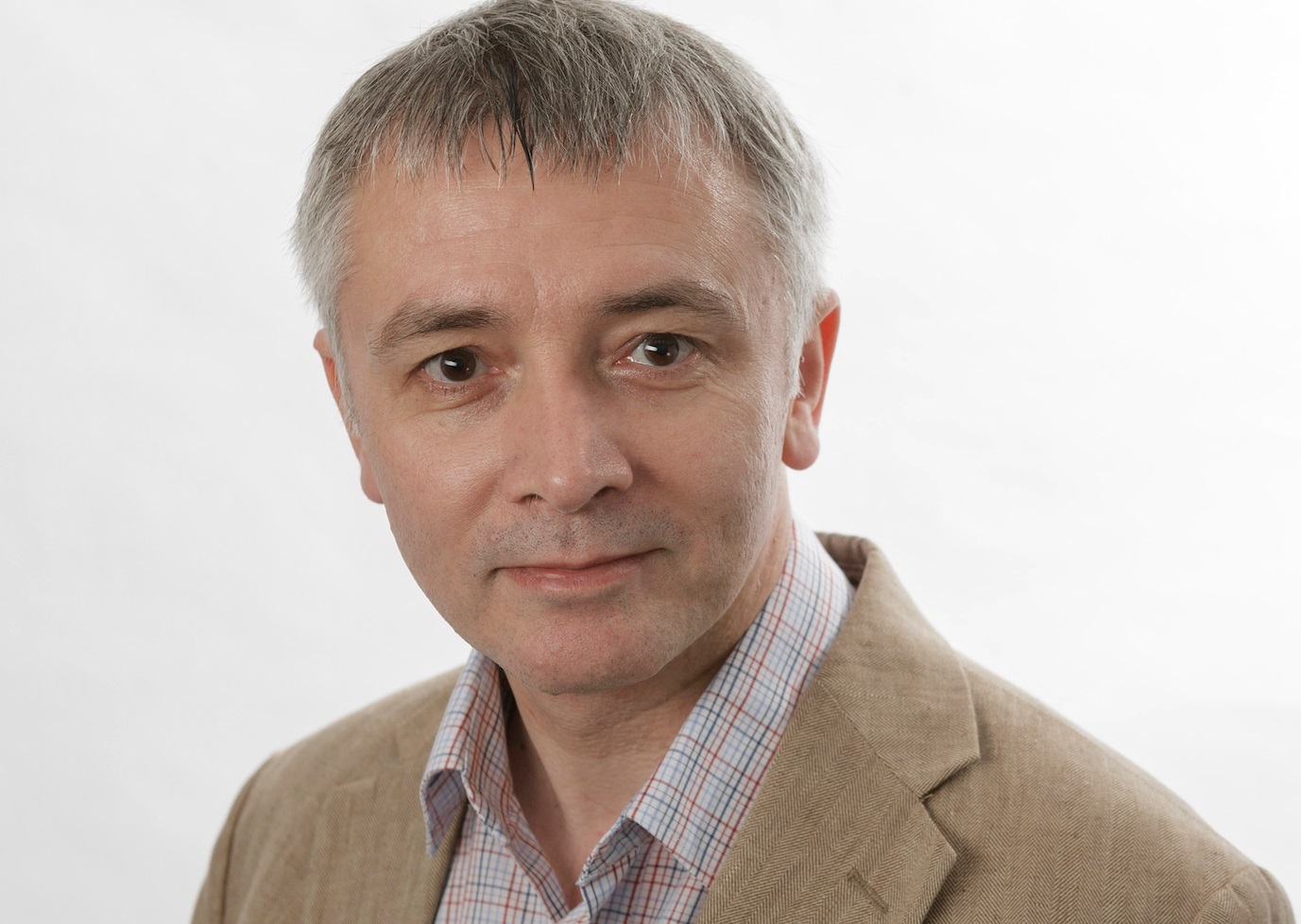Learning to Speak about Love in Fundraising

This is a session about a new approach to relationship fundraising. It is now over 30 years since Ken Burnett first mooted the terminology and sought to map out an approach to building, maintaining, and developing supporter relationships that would be based squarely on donor needs. The approach would be manifest in offering meaningful choice, thanking donors properly, treating them with respect, supplying them with timely feedback, and being open and transparent about the organization and its approach. This we have come to see as the basis of Relationship Fundraising 1.0.
At the time that Ken was explaining the approach, our colleagues in the commercial world were wrestling with the concept of relationship marketing and what that might mean for the development of customer relationships. In the business world, it was recognized in the 1990s that consumers experience relationships as an amalgam of satisfaction (with the service provided), commitment (to the product, organization, or brand), and trust. It was argued that all three of these dynamics were important because all were linked to customer loyalty and retention. This approach was then imported to the fundraising sector, where it was recognized that attending to these elements could significantly boost donor lifetime value and the longevity of donor relationships. Thus, Relationship Fundraising 2.0 was born; a focus on how relationships were experienced, rather than a series of actions that needed to be taken per se.
But all too often when we import ideas from the commercial sector, we ignore what is distinctive about that context and why what works there may not work for us in fundraising. Customers may well experience their relationships with businesses (where cash changes hands in exchange for products or services) as an amalgam of satisfaction, commitment, and trust. But how relevant is that model to fundraising, where relationships are communal and not based on exchange. In a communal relationship I give because I genuinely care about your welfare – period. Not because of any expectation that you will do something for me in return.
At the Institute for Sustainable Philanthropy, we have identified through research a better way of looking at relationship fundraising. In what we call Relationship Fundraising 3.0, supporter relationships are best viewed as a powerful blend of identity, wellbeing, and love.
Identity
Most fundraisers have an intuitive understanding of why people give – i.e., their motivation for giving. There is a difference, though, between why people give and who they are when they give – i.e., their identity. We have found several categories of identity can be helpful in explaining giving, including moral identity and compassionate identity. Our experimental work with live fundraising communications has shown that using this understanding to inform communications design and the writing of fundraising copy can dramatically increase giving.
Wellbeing
Fundraising can also be used as a tool to help donors feel good when they give. The most powerful elements of human wellbeing for fundraising to address are connection, competence, and autonomy. In respect of connection, we need to feel connected to others that we love and care about. The greater that sense of connection the greater the level of wellbeing that we experience. We also have an innate need to experience competence. In plain English, we feel good about ourselves when we feel we are good at doing something. In the context of philanthropy, by definition, what drives wellbeing is how competent we feel in expressing our love for others. Finally, when we feel we have a say in something or a hand in making something good happen, we experience greater levels of wellbeing – so giving donors a voice and agency in the impact they help create, is crucial. In our experimental work, combining attention on both identity and wellbeing can quite literally double giving.
Love
The final dimension is perhaps the least understood, an irony given that philanthropy is at its very root about love. Rather than talk to love, many in our profession have defaulted to the language of money, or proxies such as gifts or support. Proxies which, however much we might dress them up, are still all about money. This matters because loving relationships are intrinsically satisfying, so talking to the love at the core of a donation can contribute meaningfully to the wellbeing that supporters experience. It also makes it easier for donors to walk alongside focal communities and feel at one with them. In an age when old fashioned notions of charity and ‘beneficiary’ are being abandoned, love can step into that space and deliver greater meaning for all.
But love is not a monolith, and the love expressed in different contexts and among different people looks, sounds, and feels very different. So to understand how to use love in specific organizations we need to be asking ourselves critical questions, such as:
- What kind of love should we articulate? Is it companionate love (i.e., friendship-based) or compassionate love (i.e., the love that we have for others less fortunate)?
- Who should the focal love be between? Is it between the donor and a focal community, or is a different relationship at issue?
- How should the love we create feel? For example, is it a warm love? Is there a playful dimension to it?
- What can the power of our love take on to make our world a better place?
- Why does the donor experience that love as meaningful?
- How can we deepen it?
Our session at AFP ICON will explore the role of identity, wellbeing, and love and begin to answer some of the questions we pose above. We will explore what practical difference talking about love can make to the support of our nonprofits and, of course, how great people feel when they are offering it. Finally, we will be reporting on the results of recent client surveys and experiments with their live fundraising communications.
You can learn more about this topic by attending Jen and Adrian's session, Learning To Speak about Love in Fundraising: New Research from 2023, at AFP ICON, April 7-9, in Toronto. Register Now!
 Adrian Sargeant, PhD: Institute for Sustainable Philanthropy - Co-Director: Adrian Sargeant PhD is Co-Director of the Institute for Sustainable Philanthropy. He is one of the world's leading fundraising academics and was formerly the first Hartsook Chair in Fundraising at the Lilly Family School of Philanthropy at Indiana University. He is the author Fundraising Principles and Practice, Building Donor Loyalty and Fundraising Management: Analysis, Planning and Practice.
Adrian Sargeant, PhD: Institute for Sustainable Philanthropy - Co-Director: Adrian Sargeant PhD is Co-Director of the Institute for Sustainable Philanthropy. He is one of the world's leading fundraising academics and was formerly the first Hartsook Chair in Fundraising at the Lilly Family School of Philanthropy at Indiana University. He is the author Fundraising Principles and Practice, Building Donor Loyalty and Fundraising Management: Analysis, Planning and Practice.
 Jen Shang, PhD: Institute for Sustainable Philanthropy - Co-Director: Jen Shang is Co-Director and Professor of Philanthropic Psychology at the Institute for Sustainable Philanthropy. Jen's research has been featured by outlets such as the BBC and the Wall Street Journal. Her research has been funded by the Society of Judgment and Decision Making, the National Science Foundation, The Aspen Institute, the Corporation for Public Broadcasting, the Association of Fundraising Professionals, and the Hewlett Foundation.
Jen Shang, PhD: Institute for Sustainable Philanthropy - Co-Director: Jen Shang is Co-Director and Professor of Philanthropic Psychology at the Institute for Sustainable Philanthropy. Jen's research has been featured by outlets such as the BBC and the Wall Street Journal. Her research has been funded by the Society of Judgment and Decision Making, the National Science Foundation, The Aspen Institute, the Corporation for Public Broadcasting, the Association of Fundraising Professionals, and the Hewlett Foundation.

